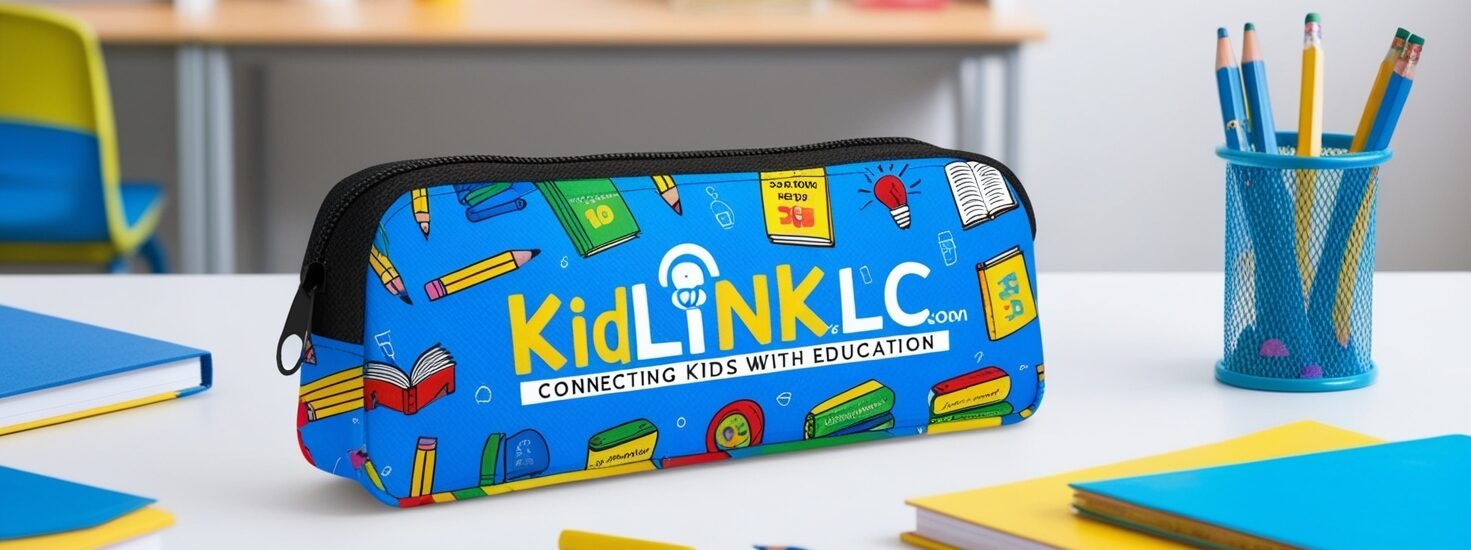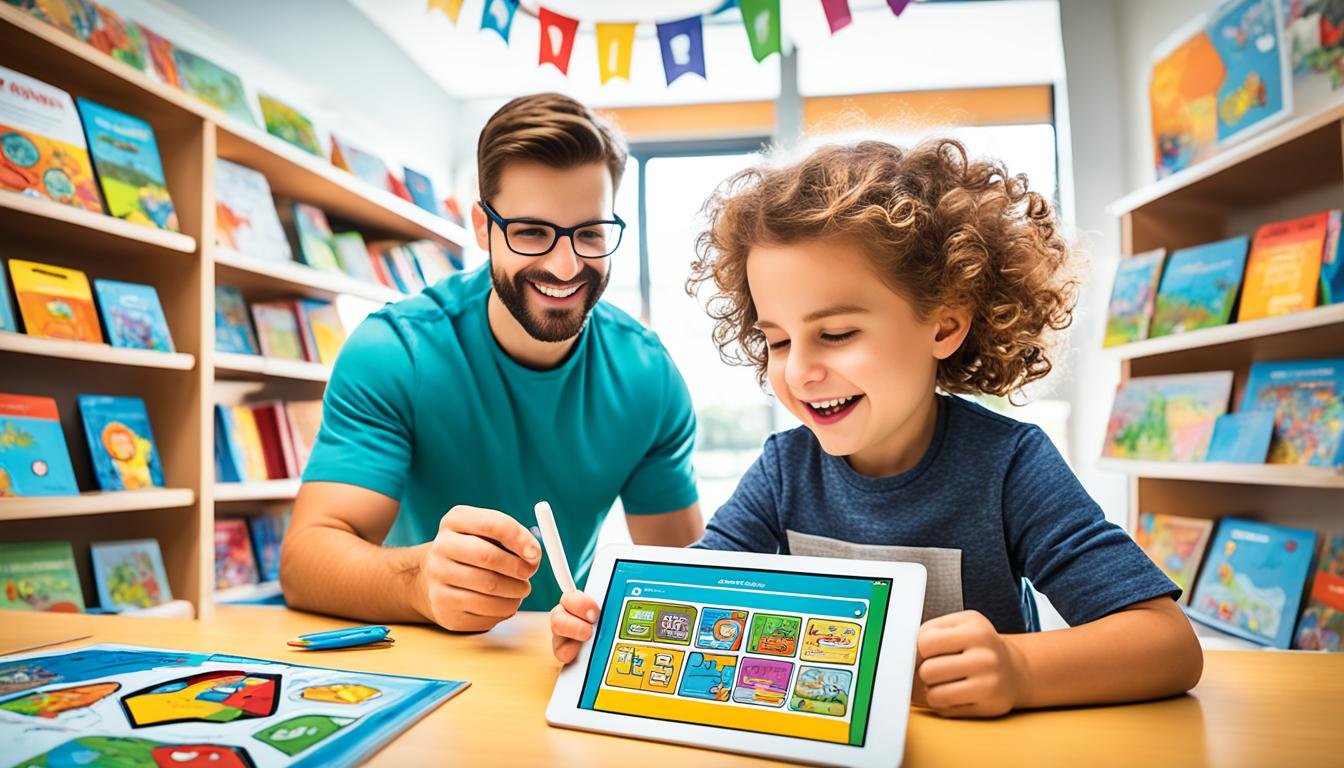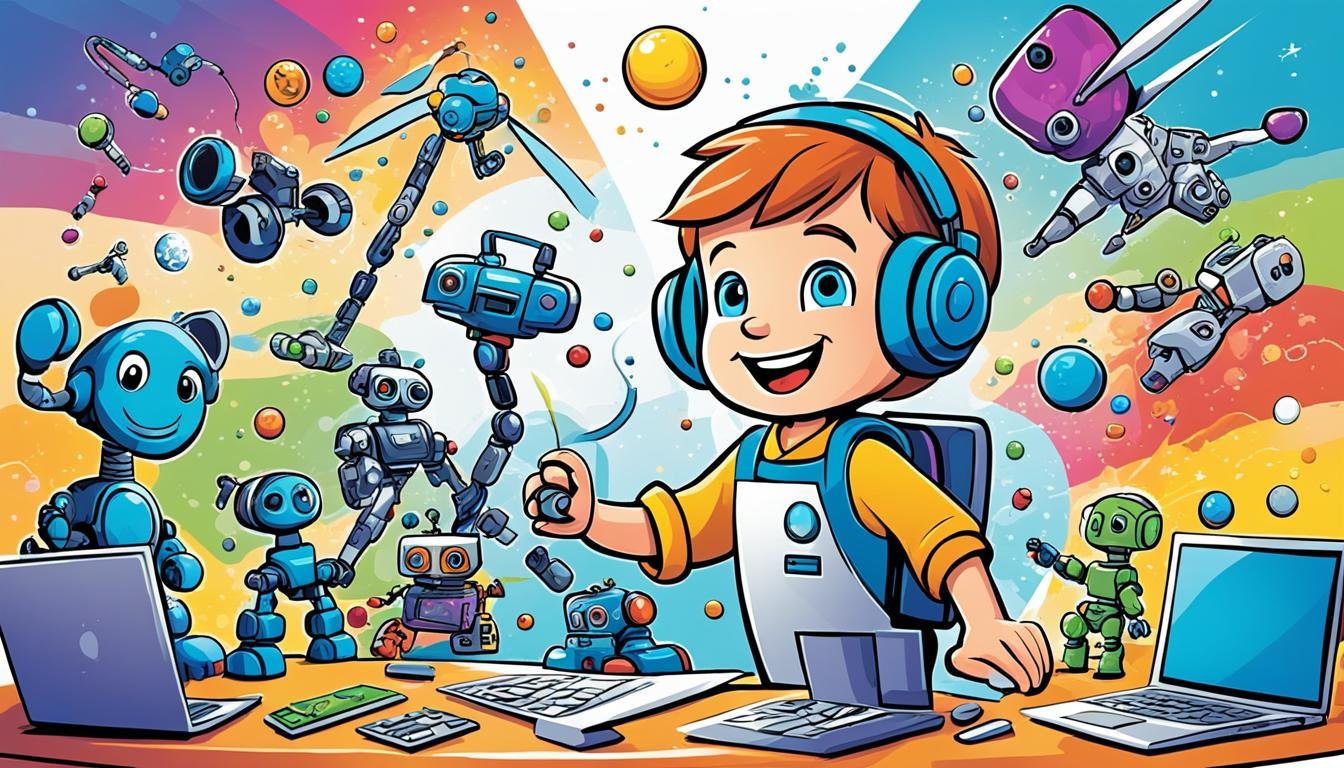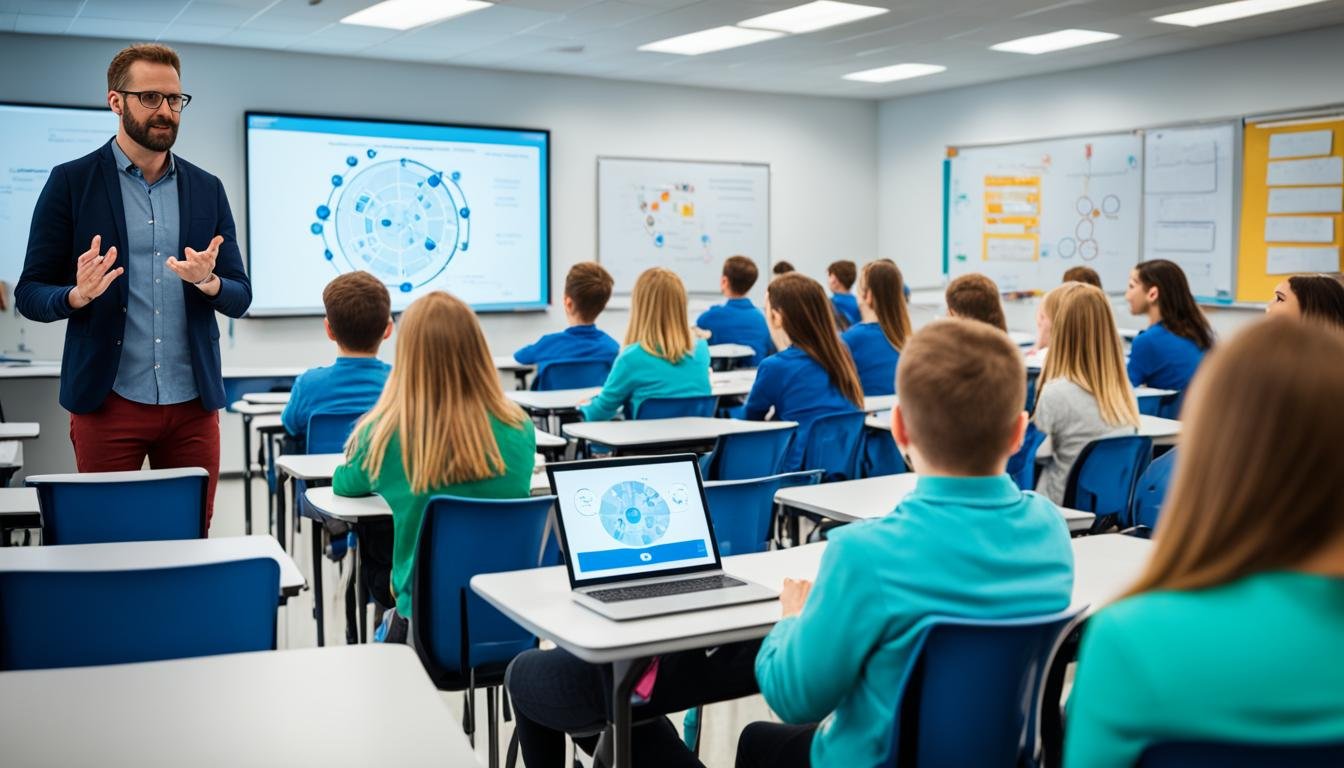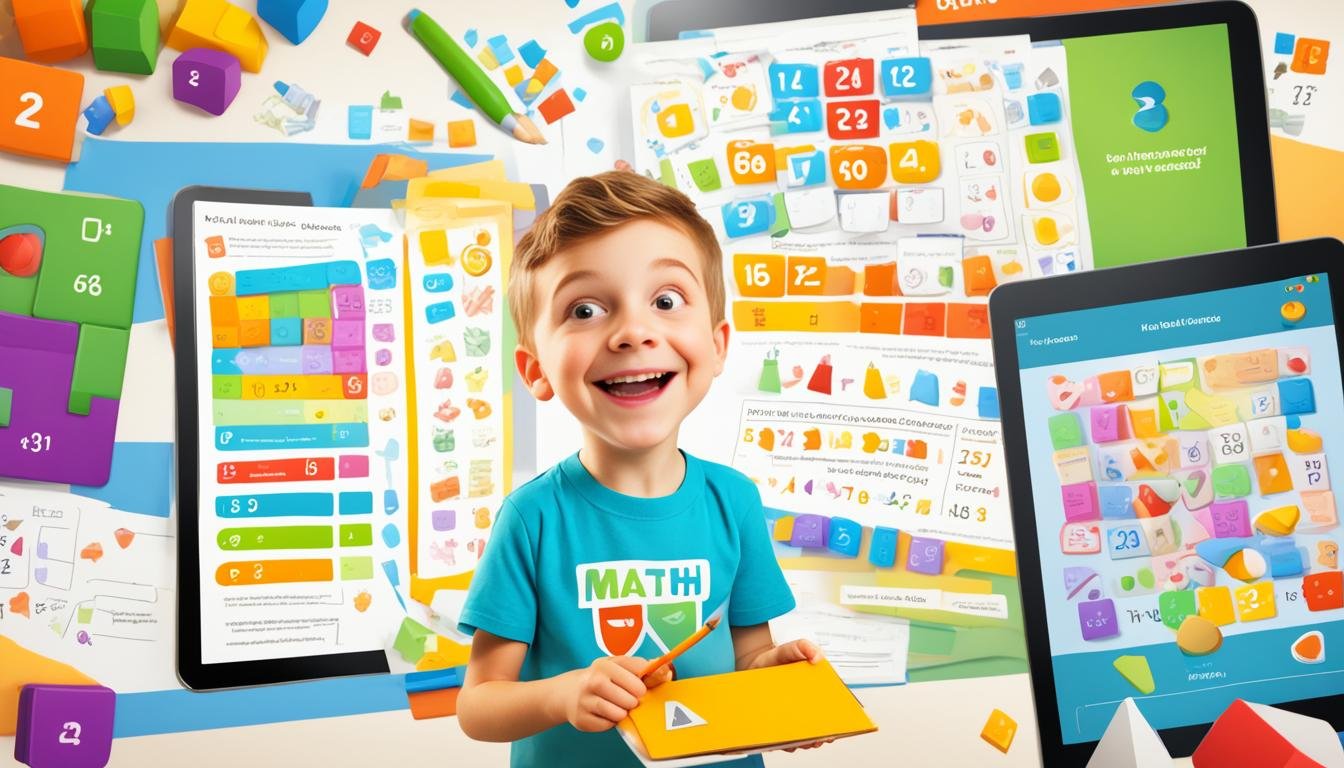How Can Parents Navigate the Special Education System to Get the Best Support for Their Child?
Have you ever felt like finding your way through the special education system is hard? It’s like trying to find your way out of a maze. For parents, it’s not just hard but very important to understand this complex system. This is key to getting the right support for kids with learning disabilities.
The individualized education plan (IEP) is a big part of this system. But, many parents find it hard to get what it means. This article will help parents find their way through the special education resources. It aims to make sure their kids get the education they need.
Key Takeaways
- Understanding the significance of the individualized education plan (IEP) in crafting tailored support.
- Identifying various learning disabilities and their implications for educational success.
- Effective strategies for collaborating with educators and specialists.
- Knowledge of special education laws and parental rights.
- Accessing valuable special education resources for informed advocacy.
- Recognizing the importance of a positive and inclusive educational environment.
The Importance of Understanding the Special Education System
Learning about the special education system is crucial for parents of kids with disabilities. It helps parents advocate for their child’s needs. By understanding special education programs, parents can make sure their child gets the right support.
Knowing about accommodations and modifications helps parents find the best ways to help their child. These changes can make a big difference in how well a child learns. They can turn a tough learning experience into a successful one.
Special education is about more than just grades. It’s about creating a place where everyone feels included. Parents who know their rights under the IDEA can move through the school system with ease. This law makes sure kids get the help they need to learn.
Being informed lets parents work well with teachers and experts. This teamwork helps shape their child’s education. For more info, check out this guide. It explains special education programs and how they support kids.
| Element | Description |
|---|---|
| Special Education Programs | Tailored education plans designed for children with disabilities to meet individual needs. |
| Accommodations | Changes in how a student is taught or assessed to support learning. |
| Modifications | Adjustments made to the curriculum or learning goals to enhance accessibility. |
| IDEA | A federal law ensuring rights and services for children with disabilities. |
Key Components of the Individualized Education Program (IEP)
Understanding the key parts of the individualized education program is key. It makes sure kids with disabilities get the support they need. The IEP process has several stages. Each stage is important for meeting the child’s unique educational needs.
Defining the IEP Process
The IEP process starts with detailed special education assessments. These assessments find out what the child is good at and what they struggle with. It’s important for parents, teachers, and specialists to work together during this step. They make sure the program fits the child’s abilities and needs.
Setting Clear Goals for Your Child
It’s crucial to set specific and measurable goals in the IEP. These goals help guide the special help the child gets. They should cover both school subjects and life skills. This helps the child grow and make progress throughout the year.
Monitoring Progress and Making Adjustments
Checking on the child’s progress is key to the IEP process. Regular meetings let us change the help the child gets if needed. This keeps the goals realistic and helps the child do well in school.
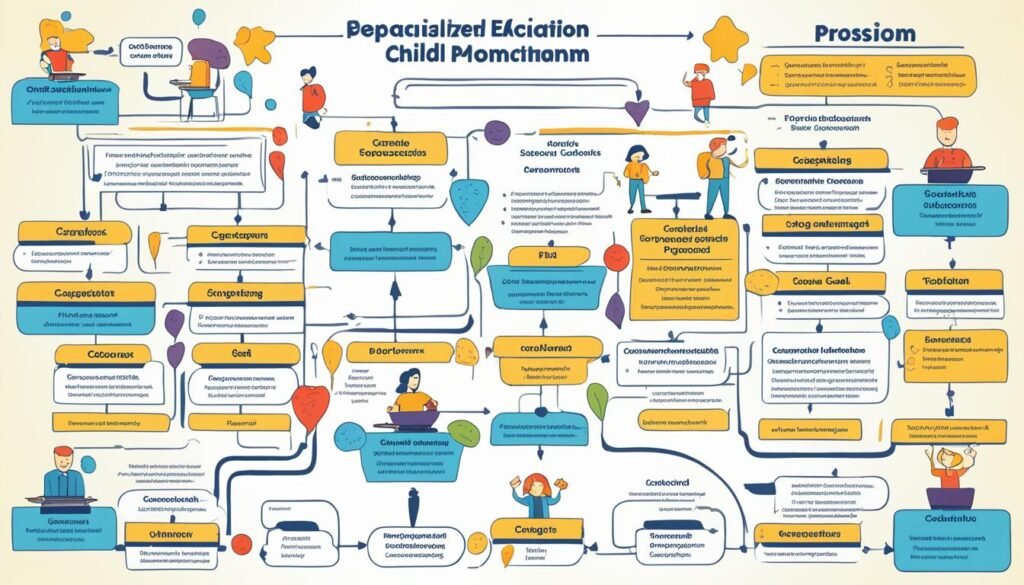
| Component | Description | Importance |
|---|---|---|
| Assessments | Evaluating the child’s strengths and needs | Forms the foundation for the IEP |
| Goal Setting | Creating specific, measurable objectives | Guides personalized educational interventions |
| Progress Monitoring | Regularly checking the child’s performance | Ensures the IEP remains effective |
Identifying Learning Differences and Support Needs
It’s key to understand the different learning disabilities to offer the right support. Conditions like dyslexia, ADHD, and auditory processing disorder can really affect a child’s school work. Spotting these issues early helps in giving them the right help to do well in school.
Types of Learning Disabilities and Their Impact
Each learning disability brings its own set of challenges to how a child takes in information. These challenges can make reading, writing, and math hard. Here’s a quick look at some common ones:
| Learning Disability | Impact on Learning |
|---|---|
| Dyslexia | Struggles with reading fluency and comprehension. |
| ADHD | Issues with attention control, leading to problems with focus and task completion. |
| Dyscalculia | Difficulty with mathematical concepts and calculations. |
| Dysgraphia | Challenges in writing, often seen in poor handwriting and difficulty organizing thoughts. |
Gathering Necessary Documentation and Evaluations
To help a child, parents need to collect important papers and get special education assessments. This helps in making a strong IEP plan. You’ll need:
- Evaluation reports from educational psychologists
- School records related to academic performance
- Medical assessments and diagnosis statements
Having these documents gives a full picture of what the child can do well and where they need help. For more info on quality education, check out KidLinkLC.com. They have lots of educational tools for kids.
Navigating the Special Education System
Understanding the special education system can be tough for parents. Advocating for a child with special needs means working with many agencies. These agencies play different roles, so it’s key for parents to know them. This knowledge helps parents navigate better and get the right support for their child.
Parents should be active in their child’s education. This means starting assessments and learning about resources. Using special teaching methods in IEP meetings can boost advocacy efforts. The aim is to make sure the child’s educational needs are met and learning is improved.
Knowing how the IEP process works is crucial. Building good relationships with teachers and staff is also key. Good communication helps solve problems and work together. By taking part in meetings and discussions, parents make sure their child’s needs are met.

For more tips on navigating special education and advocating for your child, check out this comprehensive resource. Learning about the system helps parents advocate better. It leads to finding the best education for their child.
Collaborating with Educators and School Staff
Working together with teachers is key to helping kids with special needs. Teachers are crucial in making the special education plan work. They adjust the curriculum to fit each student’s needs. Parents can help by keeping in touch and building good relationships with school staff.
The Role of Teachers in Supporting Your Child
Teachers help spot what each student needs and make learning welcoming for everyone. They make sure lessons fit different ways of learning. Plus, they work with parents to share updates and tweak strategies as needed.
Building Relationships with School Therapists
Working closely with school therapists makes learning better for your child. Therapists bring special skills that match classroom activities and the IEP goals. By using therapist advice in daily lessons, parents and teachers create a supportive environment. For tips on working with teachers, check out this resource. Working with teachers and therapists leads to better learning for your child.
Understanding Special Education Laws and Rights
Parents are key in making sure their kids get the educational help they need. Knowing about special education laws helps parents speak up for their kids with disabilities. Laws protect students with disabilities, making sure they get a Free Appropriate Public Education (FAPE). This knowledge helps parents get the right support for their child’s learning.
Overview of Key Legislation and Protections
Many laws protect the rights of students with disabilities. The Individuals with Disabilities Education Act (IDEA) sets rules for special education services. Section 504 of the Rehabilitation Act and the Americans with Disabilities Act (ADA) also protect against discrimination and require schools to make reasonable changes. These laws help parents understand their kids’ rights in school and the need for personal support.
Knowing Your Rights as a Parent
It’s important for parents to know their rights to help their child in school. You can take part in making your child’s Individualized Education Program (IEP) and ask for evaluations to see if they need special education. You also have the right to see your child’s school records and get updates on their progress. Knowing these rights helps protect your child and make sure they get the services they need to do well. For more info on how schools handle data and privacy, check out the privacy policy of schools.

Utilizing Support Services for Special Needs Students
Getting the right support is key for special needs students to do well in school. These services offer help that meets each student’s unique needs. By using specific strategies, schools can make sure students with disabilities do well and succeed.
What are Support Services?
Support services for special needs students include many tools to help with learning and growing. These include:
- Speech therapy to help with talking skills
- Occupational therapy to improve daily skills
- Special lessons tailored to each student’s learning style
These services are crucial for overcoming challenges that students might face. They help improve how well students do in school and grow as individuals.
Types of Educational Accommodations Available
Educational accommodations are important for students with special needs. They make a big difference in how well students do. Some common ones are:
- Lessons that fit what each student can do
- Help during tests like more time or different formats
- Tools like speech-to-text software or audiobooks to help with learning
Each accommodation helps make learning fair for everyone. It lets students fully take part in their school work.
Creating an Inclusive Education Environment
An inclusive education environment helps all students feel they belong and are accepted. By using the inclusive education model, schools boost social skills and academic success for all. This approach helps parents push for inclusive education programs that meet their child’s needs.
Benefits of the Inclusive Education Model
- Enhanced Social Skills: Students learn to interact and work with peers from diverse backgrounds.
- Improved Academic Outcomes: Research shows that all students can achieve better results in inclusive environments.
- Development of Empathy: Exposure to different learning needs fosters emotional intelligence.
- Better Preparation for Real-World Situations: Inclusive settings mimic the diversity of society, preparing students for future interactions.
Strategies for Effective Inclusion in Education
Using strategies for effective inclusion can make education better. Here are some ways to do it:
- Differentiated Instruction: Tailoring lessons to meet the various learning styles and needs of students.
- Classroom Accommodations: Modifying the environment or materials to ensure accessibility for all learners.
- Collaboration Among Educators: Teachers working together to share insights and strategies that support special needs in schools.
- Active Involvement of Families: Engaging parents in the education process to reinforce learning at home.
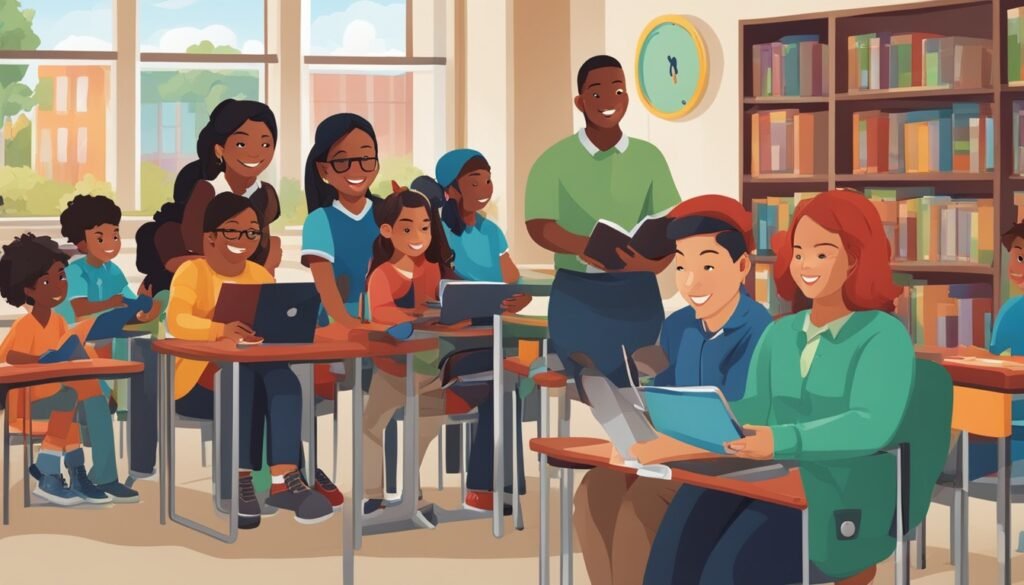
Early Intervention Programs for Special Needs
Early intervention is key for kids with special needs. Spotting learning disabilities early can make a big difference in their growth and learning. Early programs help these kids do well in school and life.
Importance of Early Identification and Support
Spotting delays or disabilities early lets families get the right support. Early programs help kids build skills and confidence. Parents should look for resources and tests to catch issues early.
Available Resources for Early Intervention
There are many special education resources to help families with early intervention. These include programs that offer assessments and solutions for each child. Connecting with local agencies and researching community options can uncover helpful resources.
| Resource Type | Description | Contact Information |
|---|---|---|
| Local Early Intervention Programs | Programs providing services to identify needs and support young children with disabilities. | Contact local school district or state education department. |
| Support Groups | Organizations that provide emotional support and practical advice to families. | Visit national organizations or online platforms for local chapters. |
| Assessment Services | Evaluation services to determine specific learning disabilities and support needs. | Contact pediatricians or local education agencies for referrals. |
| Community Workshops | Educational workshops offered to parents to understand early intervention. | Check local community centers or online event listings. |
Effective Communication with Your Child
Parents of special needs students need to build strong communication skills. This helps them and their kids talk openly about feelings and challenges. Doing this supports both emotional health and school success.
Encouraging Openness and Active Listening
To improve communication, parents should listen actively. This means really paying attention to what kids say and showing they understand. Simple actions like looking in the eyes, repeating back what kids say, and asking open questions help a lot.
Parents should make a safe space for kids to share their worries. When they listen well, kids feel more comfortable talking. This helps with emotional growth. Talking during daily activities can also make communication better.
Supporting Emotional Development Alongside Academics
Emotional health and school success go hand in hand. Parents are key in helping their kids with both. By tackling emotional issues and building strength, kids do better in school and life.
Using tools like effective communication with the IEP team helps too. These methods make school better for kids with special needs.

| Active Listening Techniques | Benefits |
|---|---|
| Maintain Eye Contact | Builds Trust |
| Reflective Listening | Enhances Understanding |
| Avoid Interrupting | Fosters Respect |
| Ask Open-Ended Questions | Encourages Expression |
Focus on both talking and emotional growth to better support your child. This helps them handle school’s challenges better.
Focusing on Strengths and Celebrating Victories
Helping a child see their strengths is key to boosting their self-esteem and drive. By focusing on what they do well, we show them every small win helps them grow. Families can help by cheering on their kids in school, making a place where being positive is the norm.
Promoting a Positive Mindset
Building a positive mindset in kids is crucial, especially for those with special needs. Saying “good job” and showing they can do it makes them feel strong. Celebrating every win, big or small, helps them see learning as a journey of growth.
Strategies for Reinforcing Academic Achievements
Supportive homes make learning better for kids. Parents can help by using different ways to boost their child’s school wins:
- Establish regular routines that help with study habits and stability.
- Create a rewards system to celebrate every achievement, big or small.
- Utilize visual aids to show progress and set clear goals.
- Encourage reflective practices for kids to think about their learning.
Adding celebrations to daily life helps with ongoing success. By focusing on what kids are good at, staying positive, and using smart strategies, parents can help their kids reach new heights. For more tips on building strong teams in special education, check out Parallel Learning.
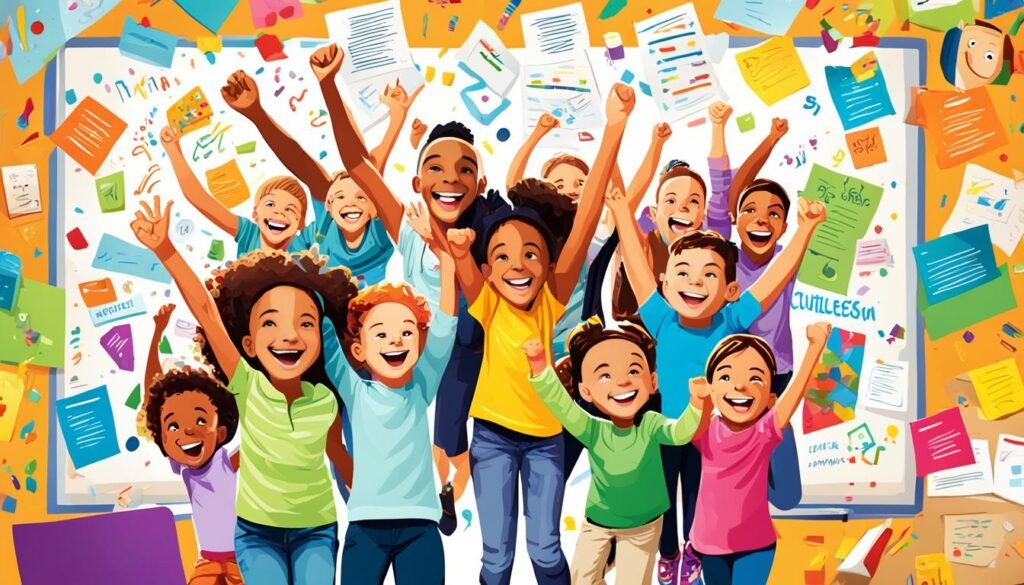
Accessing Special Education Resources
Finding the right special education resources is key for parents of children with unique learning needs. There are many places that offer helpful information and tools. Knowing where to look helps parents play a big part in their child’s education.
Where to Find Valuable Information and Tools
Parents can look at different sources for educational tools and resources, such as:
- Local school district websites, which often provide resources pertinent to special education.
- Books authored by experts in special education and child psychology that cover necessary strategies and interventions.
- Online platforms like Understood.org and the National Center for Learning Disabilities (NCLD), which offer comprehensive articles and strategies tailored for special needs.
- Workshops and seminars conducted by educational institutions or community organizations, which offer hands-on training and informative sessions for parents.
Connecting with Special Education Advocacy Groups
Joining advocacy groups for special needs can really help. These groups give extra insights and support, helping parents speak up for their kids. Some top groups include:
| Advocacy Group | Focus Area | Services Offered |
|---|---|---|
| National Parent Technical Assistance Center | Parent training and information | Workshops, resources, and one-on-one support |
| Council for Exceptional Children | Education resources for special needs | Publications, networking, and advocacy resources |
| Learning Disabilities Association of America | Advocacy for individuals with learning disabilities | Information dissemination and support group listing |
By using these special education resources and joining advocacy groups, parents can build a strong support system for their child’s education.

Conclusion
Navigating the special education system needs a proactive approach and understanding. This article covered key points for supporting special needs children. Knowing about the IEP, learning differences, and special education laws helps parents advocate for their child.
Working well with teachers, therapists, and support services is crucial for better education. Parents should talk often with their child’s school to make sure their child gets the right help. Advocacy is very important; it speaks for kids who can’t speak for themselves.
There are many resources available to help you on this path. You can find support from organizations, groups, or educational tools. By using these resources, you can better support your child’s education. This effort will help your child grow and develop.
